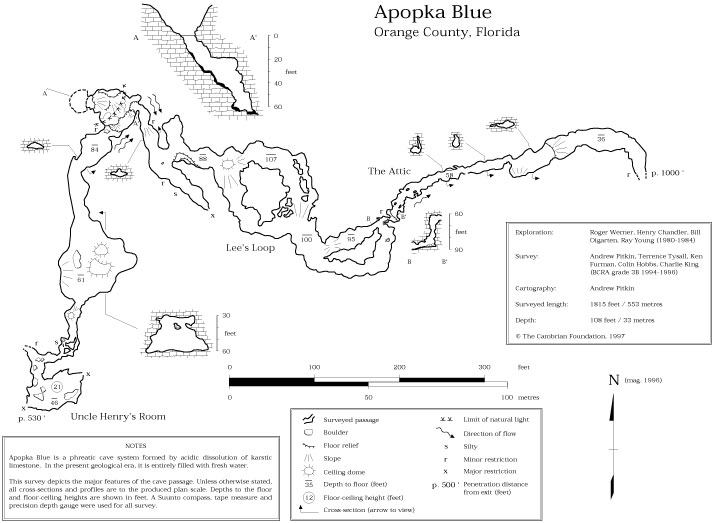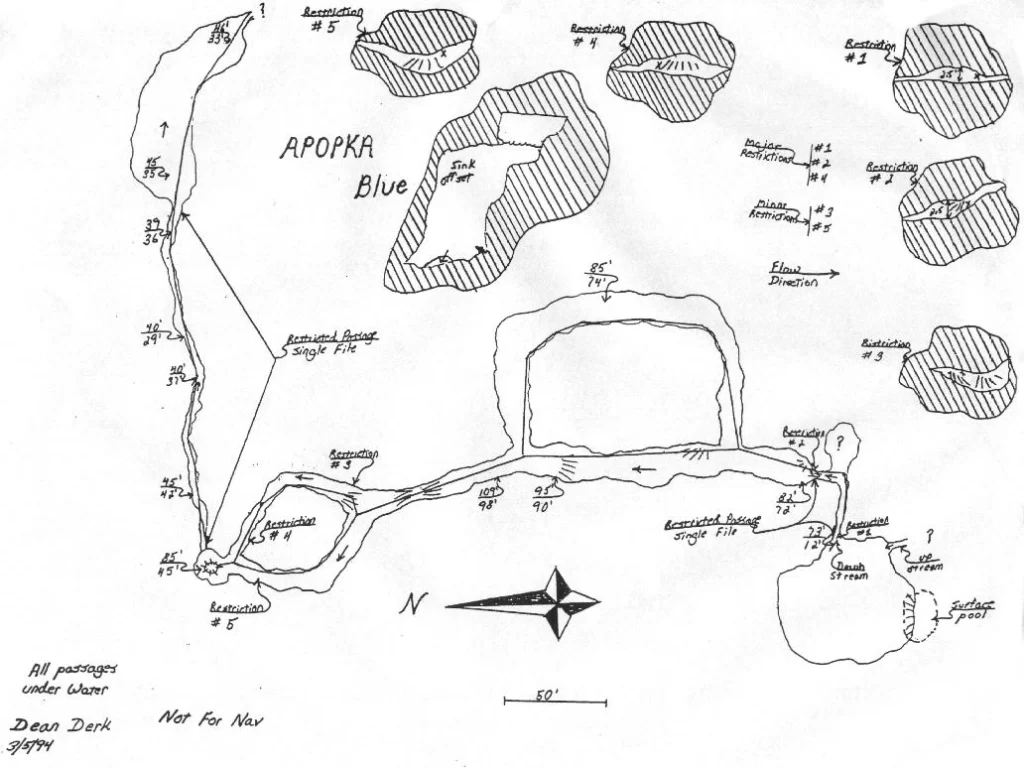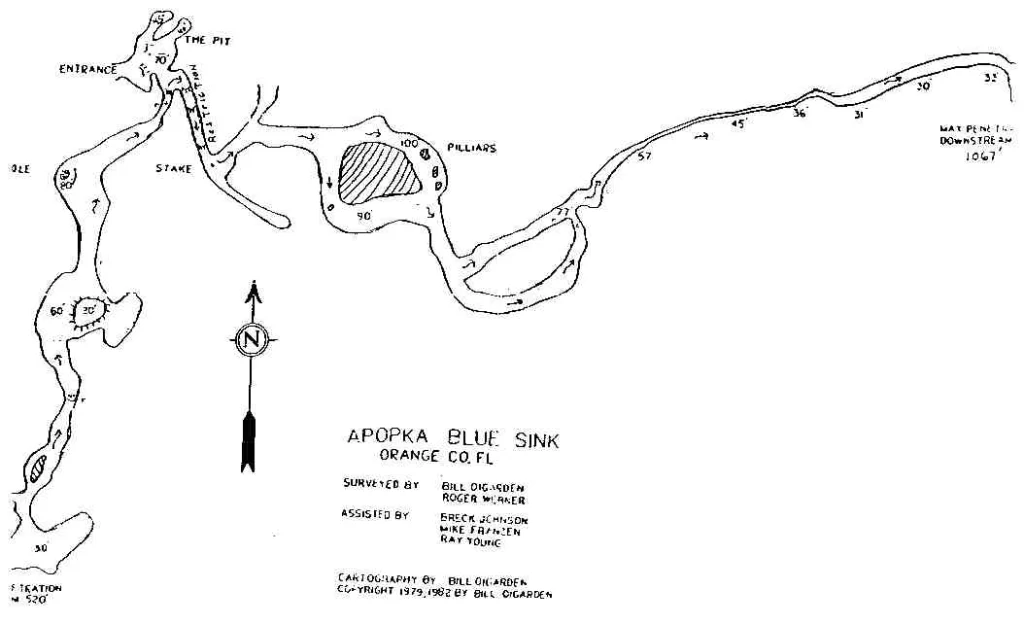Apopka Blue Sink USA
Explore the hidden gem of Apopka Blue Sink, nestled in the outskirts of the City of Apopka, approximately 12 miles northwest of Orlando. Despite its natural beauty, this karst window has, unfortunately, become a receptacle for litter and waste. Thanks to the commendable efforts of The Cambrian Foundation, debris has been cleared from the sink, ensuring its ecological health.
- Region: Florida
- Coordinates: 28.75168, -81.52081
- Depth: 110 ft
- Remarks:
- Type: Cave
Environmental Restoration: A Collaborative Effort
- Debris Removal:
- The Cambrian Foundation played a pivotal role in removing various items from the sink, such as a burned sofa, Christmas trees, a car engine block, bottles, and fencing.
- Preservation of Unique Species:
- Apopka Blue Sink is the exclusive habitat of the Orlando spider cave crayfish (Troglocambarus sp.), a rare and unique species. The conservation of these karst environments, free from litter and debris, is crucial for the survival of such rare species.
Ecological Significance: Orlando Spider Cave Crayfish
- Unique Cave Crayfish:
- Apopka Blue Sink is home to the Orlando spider cave crayfish, a species found only in this particular system.
- The existence of rare species emphasizes the importance of maintaining karst environments in pristine conditions.
Call to Environmental Responsibility
- Critical for Success:
- The preservation of these karst environments, devoid of litter and external debris, is integral to the success and sustainability of the diverse ecosystems they support.
Embark on a journey to Apopka Blue Sink, where environmental stewardship and the preservation of unique species converge in a delicate balance between nature and human impact.\
1



FAQ
Depth: 110 ft
While access details are not specified, Apopka Blue Sink is primarily recognized for environmental preservation efforts by organizations like The Cambrian Foundation. Public access might be restricted to conservation purposes.
Apopka Blue Sink is home to the Orlando spider cave crayfish (Troglocambarus sp.), a rare species found exclusively in this system. Conservation efforts are crucial for the survival of this unique aquatic creature.
